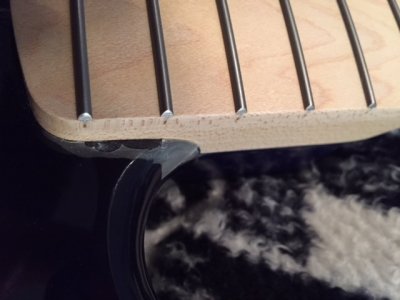Michaelga
Junior Member
- Messages
- 187
I am inexperienced when it comes to finishing guitars. I have 3 bodies that I would like to finish. One is mainly for practice. It is a Standard 5 poplar body that I have dyed black that I simply want to apply a clear coat to. This is practice for bass # 2, a standard 5 swamp ash body dyed blue and sealed with dewaxed Zinser spray shellac. The third body is an Carvin alder body that I experimented on with dye, but I'm not satisfied with the results. I want to paint it with a solid color. I purchased a bunch of 2k auto finish, thinking that it would be a good material to work with. Cagey has said it it's a lot more difficult and dangerous to use, so I'm not going to risk it. What is the simplest, safest way to finish a body without expensive gear beyond spray paint or simple wipe on products? The internet is full of information, but it is overwhelming to me to understand what is the simplest way to proceed. If I knew someone with experience with finishing, I think I would just pay the money and get a professional finish. Any suggestions?
Michael
Michael




